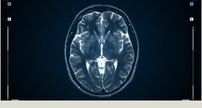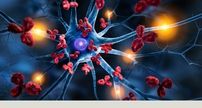
Course Listing
Advance your knowledge in engaging, interactive courses developed and taught by leaders in the field.
Browse All MDS Courses
New courses are added regularly. If there are not courses listed in the category you are searching, more will be scheduled at a later date. Check back soon or sign up for email notifications.
Animal Models of Parkinson's Disease
On Demand
Interactive
60 Minutes
Foundational / Beginner
567 The MDS Animal Models of Parkinson's Disease course provides an introduction to animal models of Parkinson’s disease, including their respective strengths and limitations for translational research. Marie-Francoise Chesselet, MD, PhD 60 1.00 2022-08-12 https://education.movementdisorders.org/Detail/567/Animal-Models-of-Parkinson's-Disease- https://education.movementdisorders.org/Upload/ActivityImages/AnimalModels_202x108900845.png 2022-08-12T00:00:00 2025-08-12T00:00:00 <p>This activity is intended for students, basic scientists, residents, primary care providers, internists, allied health, non-neurology specialists, and industry who have limited to no movement disorder experience.</p> <p>This MDS interactive module provides learners with an introduction to animal models of Parkinson's disease. </p> <p><span style="text-decoration:underline;">Upon completion of this course, participants will be able to:</span></p><p style="margin-left:30px;">1. Describe different animal models of PD and their underlying rationale<br>2. Discuss strengths and limitations of various animal models of PD and compare and contrast to human PD<br>3. Critically interpret results of studies using animal models of PD in a translational context</p> <p>MDS staff members involved with the planning, development, and review of the content for this activity have no relevant affiliations or financial relationships to disclose.</p> <p><strong>Accreditation Statement</strong></p><p>This activity has been planned and implemented in accordance with the accreditation requirements and policies of the Accreditation Council for Continuing Medical Education (ACCME). The International Parkinson and Movement Disorder Society is accredited by the ACCME to provide continuing medical education for physicians.</p><p><strong> </strong></p><p><strong>Credit Designation Statement</strong></p><p>The International Parkinson and Movement Disorder Society designates this education activity for a maximum of 1.0 <em>AMA PRA Category 1 Credits™</em>. Physicians should claim only credit commensurate with the extent of their participation in the activity.</p> <p>Your chosen sessions must be attended in their entirety. Partial credit of individual sessions is not available. If you are seeking continuing education credit for a specialty not listed in the Accreditation Statement, it is your responsibility to contact your licensing/certification board to determine course eligibility for your board requirement.</p> <p>1. Active Internet connection (DSL or Cable). Dial-up connection will have constant buffering problem.</p><p>2. Compatible with Windows PC and MAC (256 MB of RAM or higher)</p><p>3. Activity is best viewed on Internet Explorer 9.0 or higher, Safari 5.0 or higher and Firefox 29.0 or higher</p><p>4. Adobe Flash Player 12.0 (or higher).</p><p>5. Adobe Reader to print certificate.</p> <p>Marie-Francoise Chesselet, MD, PhD - Departments of Neurology and Neurobiology, UCLA, Los Angeles, California, USA</p> <p>All individuals in control of content for this activity are required to disclose all financial relationships with ineligible companies (as defined by the ACCME) over the last 24 months. Disclosure information is available below. All relevant financial relationships have been mitigated in advance of this program.</p><p><br></p><p><strong>Marie-Francoise Chesselet</strong>: <em>Author<br></em>Consultant: Accure Therapeutics</p><p>Stock: Axial Biotherapeutics</p><p><br></p><p><strong>Rafael Zuzuarregui</strong>: <em>Reviewer<br></em>Nothing to Disclose</p> MDS Education <p>Nick Bauman</p> 0 /Courses/Animal-Models-of-Parkinsons-Disease.htm Animal Models of Parkinson's Disease 2022-08-12T00:00:46.340 0 0 Foundational / Beginner Industry Researcher Researcher-Basic Science Interactive CME On-Demand English USA
Approach and Management of Neuropsychiatric Issues in Parkinson’s Disease
On Demand
Interactive
60 Minutes
Foundational / Beginner
919 This module will provide up-to-date knowledge of key neuropsychiatric features of movement disorders including practical guidelines, assessment tools for diagnosis and evidence-based treatments. Additionally, the module will discuss state-of-the-art care for the complex needs of our patients with movement disorders. Lana Chahine, MD; Daniel Weintraub, MD; Bart Swinnen, MD, PhD 60 1.00 2025-03-17 https://education.movementdisorders.org/Detail/919/Approach-and-Management-of-Neuropsychiatric-Issues-in-Parkinson’s-Disease https://education.movementdisorders.org/Upload/ActivityImages/05INTERACT-41-001-Neuropsychiatric-Issues-in-PD-202x108821930.jpg 2025-03-17T00:00:00 2028-03-17T00:00:00 <p><strong>ACCREDITATION STATEMENT</strong></p><p>This activity has been planned and implemented in accordance with the accreditation requirements and policies of the Accreditation Council for Continuing Medical Education (ACCME). The International Parkinson and Movement Disorder Society is accredited by the ACCME to provide continuing medical education for physicians.</p><p><br></p><p><strong>CREDIT DESIGNATION STATEMENT</strong></p><p>The International Parkinson and Movement Disorder Society designates this activity for a maximum of 1 <em>AMA PRA Category 1 Credits™</em>. Physicians should only claim credit commensurate with the extent of their participation.</p><p><br></p><p><strong>FACULTY DISCLOSURE</strong></p><p>All individuals in control of content for this activity are required to disclose all financial relationships with ineligible companies (as defined by the ACCME) over the last 24 months. Disclosure information is available <a class="fr-file" href="https://d1t84l7yt030ad.cloudfront.net/FroalaFiles/Disclosures - Neuropsychiatric Issues in PD_03032025030439.pdf" target="_blank">HERE</a>. All relevant financial relationships have been mitigated in advance of this program.</p><p><br></p><p><strong>SATISFACTORY COMPLETION</strong></p><p>Participants must complete an evaluation for each session they attend to receive continuing medical education credit. Your chosen session(s) must be attended in their entirety. Partial credit for individual sessions is not available.</p><p><br></p><p><strong>METHOD OF PARTICIPATION </strong></p><p>Your chosen sessions must be attended in their entirety. Partial credit of individual sessions is not available. If you are seeking continuing education credit for a specialty not listed in the Accreditation Statement, it is your responsibility to contact your licensing/certification board to determine course eligibility for your board requirement.</p><p><br></p><p><strong>CONTENT VALIDITY STATEMENT</strong></p><p>All recommendations involving clinical medicine in MDS activities are based on evidence that is accepted within the profession of medicine as adequate justification for their indications and contraindications in the case of patients. All scientific research referred to, reported or used in CME in support or justification of a patient care recommendations conforms to the generally accepted standards of experimental design, data collection and analysis. Activities that promote recommendations, treatment or manners of practicing medicine not within the definition of CME or are knowing to have risks or dangers that outweigh the benefits or are knowing to be ineffective in the treatment of patients do not constitute valid CME.</p> MDS Education <p><span style="background-color: null;"><strong>FACULTY</strong></span></p><p>Lana Chahine, MD - University of Pittsburgh, Pittsburgh, PA, USA</p><p>Daniel Weintraub, MD - University of Pennsylvania, Philadelphia, PA, USA</p><p>Bart Swinnen, MD, PhD - UCSF, San Francisco, CA, USA</p><p><br></p><p><strong>LEARNING OBJECTIVES</strong></p><p>Upon completion of this activity, learners will be able to: </p><p>1. Recognize the range of key neuropsychiatric features of movement disorders.</p><p>2. Learn how to assess and diagnose neuropsychiatric disorders in movement disorders.</p><p>3. Implement an evidence-based treatment plan for neuropsychiatric features of movement disorders.</p><p><br></p><p><strong>INTENDED AUDIENCE</strong></p><p>This activity is intended for students, residents, primary care providers, internists, allied health, non-neurology specialists, and industry who have limited to no movement disorder experience.</p><p><br></p><p><strong>HARDWARE AND SOFTWARE REQUIREMENTS</strong></p><p>1. Active Internet connection (DSL or Cable). Dial-up connection will have constant buffering problem.</p><p>2. Compatible with Windows PC and MAC (256 MB of RAM or higher).</p><p>3. Activity is best viewed on Internet Explorer 9.0 or higher, Safari 5.0 or higher and Firefox 29.0 or higher.</p><p>4. Adobe Flash Player 12.0 (or higher).</p><p>5. Adobe Reader to print certificate.</p> 0 /Courses/Approach-and-Management-of-Neuropsychiatric-Issues-in-Parkinsons-Disease.htm Approach and Management of Neuropsychiatric Issues in Parkinson’s Disease 2025-03-19T12:12:20.017 0 0 Foundational / Beginner Clinician Fellow Industry Resident Student Interactive CME On-Demand English USA
Approach and Management of Sleep Problems in Parkinson’s Disease
On Demand
Interactive
60 Minutes
Foundational / Beginner
566 The MDS Approach and Management of Sleep Problems in Parkinson's Disease course will provide a comprehensive overview of the diagnostic and therapeutic approach to the wide range of nocturnal sleep problems (insomnia, restless legs syndrome, periodic limb movements, obstructive sleep apnea, and REM sleep behavior disorder) and diurnal sleep problems (excessive daytime sleepiness and sleep attacks) that can affect the Parkinson's disease patient. Mehri Salari, MD, Jirada Sringean, MD, PhD 60 0.00 2022-04-29 https://education.movementdisorders.org/Detail/566/Approach-and-Management-of-Sleep-Problems-in-Parkinson’s-Disease https://education.movementdisorders.org/Upload/ActivityImages/Approach-and-Management-of-Sleep-Problems-in-Parkinson’s-Disease350524.jpg 2022-04-29T00:00:00 2028-04-29T00:00:00 MDS Education <p><span style="background-color: null;"><strong>FACULTY</strong></span></p><p>Jirada Sringean, MD, PhD - Chulalongkorn Hospital, Pathumwan, Thailand<br>Mehri Salari, MD - Shahid Beheshti University of Medical Science, Tehran, Iran</p><p><br></p><p><strong>LEARNING OBJECTIVES</strong></p><p>Upon completion of this activity, learners will be able to: </p><p>1. Provide an overview of sleep problems in Parkinson’s disease including insomnia, nocturnal hypokinesia, excessive daytime sleepiness, parasomnia, sleep-related movement disorders in PD, and sleep-related breathing disorders.<br>2. Choose the best diagnostic method of evaluation of sleep disorders in PD for clinical practice.<br>3. Discuss treatment of sleep problems in PD.</p><p><br></p><p><strong>INTENDED AUDIENCE</strong></p><p>This activity is intended for students, residents, primary care providers, internists, allied health, non-neurology specialists, and industry, at a beginner to intermediate level.</p><p><br></p><p><strong>HARDWARE AND SOFTWARE REQUIREMENTS</strong></p><p>1. Active Internet connection (DSL or Cable). Dial-up connection will have constant buffering problem.</p><p>2. Compatible with Windows PC and MAC (256 MB of RAM or higher).</p><p>3. Activity is best viewed on Internet Explorer 9.0 or higher, Safari 5.0 or higher and Firefox 29.0 or higher.</p><p>4. Adobe Flash Player 12.0 (or higher).</p><p>5. Adobe Reader to print certificate.</p> 0 /Courses/Approach-and-Management-of-Sleep-Problems-in-Parkinsons-Disease.htm Approach and Management of Sleep Problems in Parkinson’s Disease 2022-04-29T00:00:50.223 0 0 Foundational / Beginner Clinician Resident Student Interactive CME On-Demand English USA
Approach and Management of Speech Problems in Parkinson's Disease
On Demand
Interactive
60 Minutes
Foundational / Beginner
661 In the Approach and Management of Speech Problems in Parkinson's Disease module, participants will understand the prevalence, characteristics of speech problems in Parkinson's disease as well as methods of assessment and treatment. Elina Tripoliti, PhD, Tereza Tykalova, PhD 60 1.00 2023-07-01 https://education.movementdisorders.org/Detail/661/Approach-and-Management-of-Speech-Problems-in-Parkinson's-Disease https://education.movementdisorders.org/Upload/ActivityImages/SpeechProblems_202x108796802.png 2023-07-01T00:00:00 2026-07-01T00:00:00 <p><strong>TARGET AUDIENCE</strong></p><p>This activity is intended for clinicians, researchers, post-doctoral fellows, medical residents, medical students, allied health professionals with an interest in current clinical trends and approaches for diagnosis and treatment of movement disorders.</p> <p>This MDS Interactive module provides learners with information on the prevalence, characteristics, assessment, and treatment of speech problems in Parkinson's disease. </p> <p>Upon completion of this activity learners will be able to:</p><p style="margin-left:30px;">1. Provide an overview of speech problems in Parkinson's disease.<br>2. Describe the main ways of evaluation of speech problems in Parkinson's disease in clinical practice.<br>3. Discuss and plan treatment of speech problems in Parkinson's disease based on functional aims for communication and participation.</p> <p>MDS staff members involved with the planning, development, and review of the content for this activity have no relevant affiliations or financial relationships to disclose.</p> <p><strong>ACCREDITATION STATEMENT</strong></p><p>This activity has been planned and implemented in accordance with the accreditation requirements and policies of the Accreditation Council for Continuing Medical Education (ACCME). The International Parkinson and Movement Disorder Society is accredited by the ACCME to provide continuing medical education for physicians.</p><p><strong> </strong></p><p><strong>CREDIT DESIGNATION STATEMENT</strong></p><p>The International Parkinson and Movement Disorder Society designates this education activity for a maximum of 1.0 <em>AMA PRA Category 1 Credits™</em>. Physicians should only claim credit commensurate with the extent of their participation.</p><p><br></p><p><strong>SATISFACTORY COMPLETION</strong></p><p>This module will take approximately one (1) hour to complete. Upon watching the lecture, participants are required to complete the module evaluation. </p> <p><strong>METHOD OF PARTICIPATION</strong></p><p>Your chosen sessions must be attended in their entirety. Partial credit of individual sessions is not available. If you are seeking continuing education credit for a specialty not listed in the Accreditation Statement, it is your responsibility to contact your licensing/certification board to determine course eligibility for your board requirement.</p><p><br></p><p><strong>EVALUATION <strong>& </strong>CLAIMING CREDIT</strong></p><p>Participants of this educational program will have the opportunity to claim their CME credits upon completion of the evaluation at the conclusion of the module. Please take time to complete the online evaluations as your input and comments are essential in planning future educational programs. The CME certificate is available immediately following the completion of the module.</p> <p>1. Active Internet connection (DSL or Cable). Dial-up connection will have constant buffering problem.</p><p>2. Compatible with Windows PC and MAC (256 MB of RAM or higher)</p><p>3. Activity is best viewed on Internet Explorer 9.0 or higher, Safari 5.0 or higher and Firefox 29.0 or higher</p><p>4. Adobe Flash Player 12.0 (or higher).</p><p>5. Adobe Reader to print certificate.</p> <p><strong>CONTENT VALIDITY STATEMENT</strong></p><p>All recommendations involving clinical medicine in MDS activities are based on evidence that is accepted within the profession of medicine as adequate justification for their indications and contraindications in the case of patients. All scientific research referred to, reported or used in CME in support or justification of a patient care recommendations conforms to the generally accepted standards of experimental design, data collection and analysis. Activities that promote recommendations, treatment or manners of practicing medicine not within the definition of CME or are knowing to have risks or dangers that outweigh the benefits or are knowing to be ineffective in the treatment of patients do not constitute valid CME.</p> <p>Elina Tripoliti, PhD, MRCSLT- National Hospital for Neurology & Neurosurgery, Marathon, Greece</p><p>Tereza Tykalova, MD- Czech Technical University of Prague, Praha, Czech Republic</p><p><br></p><p><br></p> <p><strong>DISCLOSURE OF FINANCIAL RELATIONSHIPS</strong></p><p>All individuals in control of content for this activity are required to disclose all financial relationships with ineligible companies (as defined by the ACCME) over the last 24 months. Disclosure information is available below. All relevant financial relationships have been mitigated in advance of this program.<br><strong><br></strong><strong>Elina Tripoliti</strong>: <em>Author</em></p><p>Nothing to Disclose</p><p><br></p><p><strong>Tereza Tykalova</strong>: <em>Author</em></p><p>Nothing to Disclose</p><p><br></p><p><strong>Chandler Gill</strong>: <em>Reviewer</em></p><p>Nothing to Disclose</p> MDS Education 0 /Courses/Approach-and-Management-of-Speech-Problems-in-Parkinsons-Disease.htm Approach and Management of Speech Problems in Parkinson's Disease 2023-08-23T14:36:33.257 0 0 Foundational / Beginner Clinician Clinician-Primary Care Fellow Health Professional Industry Resident Student Interactive CME On-Demand English USA
Approach and Practical Management of Treatable Adult-onset Progressive Ataxias
On Demand
Interactive
60 Minutes
Foundational / Beginner
442 The MDS Approach and Practical Management of Treatable Adult-onset Progressive Ataxias course will provide a comprehensive overview of treatable adult-onset ataxias. Marina Picillo, MD, PhD.; Danish Bhatti, MD, FAAN 60 0.00 2021-07-20 https://education.movementdisorders.org/Detail/442/Approach-and-Practical-Management-of-Treatable-Adult-onset-Progressive-Ataxias https://education.movementdisorders.org/Upload/ActivityImages/Approach-and-Practical-Management-of-Treatable-Adult-Onset-Progressive-Ataxias505806.jpg 2021-07-20T00:00:00 2027-07-20T00:00:00 MDS Education <p><span style="background-color: null;"><strong>FACULTY</strong></span></p><p>Marina Picillo, MD, PhD - School of Medicine and Surgery, University of Salerno, Italy </p><p>Danish Bhatti, MD, FAAN - International Neurology, University of Nebraska, USA</p><p><br></p><p><strong>LEARNING OBJECTIVES</strong></p><p>1. Describe a cost-effective, evidence-based diagnostic approach for a patient with adult-onset progressive sporadic ataxia (including a classification system for adult-onset progressive cerebellar ataxias). </p><p>2. Identify clinical manifestations and ancillary investigations for treatable sporadic adult-onset ataxias. </p><p>3. Discuss pharmacological therapeutic options for treatable adult-onsetprogressive ataxias.</p><p><br></p><p><strong>INTENDED AUDIENCE</strong></p><p>This activity is intended for students, residents, primary care providers, internists, allied health, non-neurology specialists, and industry who have limited to no movement disorder experience.</p><p><br></p><p><strong>HARDWARE AND SOFTWARE REQUIREMENTS</strong></p><p>1. Active Internet connection (DSL or Cable). Dial-up connection will have constant buffering problem.</p><p>2. Compatible with Windows PC and MAC (256 MB of RAM or higher).</p><p>3. Activity is best viewed on Internet Explorer 9.0 or higher, Safari 5.0 or higher and Firefox 29.0 or higher.</p><p>4. Adobe Flash Player 12.0 (or higher).</p><p>5. Adobe Reader to print certificate.</p> 0 /Courses/Approach-and-Practical-Management-of-Treatable-Adult-onset-Progressive-Ataxias1.htm Approach and Practical Management of Treatable Adult-onset Progressive Ataxias 2024-08-28T12:00:22.660 0 0 Foundational / Beginner Clinician Interactive On-Demand English USA
Assessment and Management of Swallowing Difficulty in Parkinson's Disease
On Demand
Interactive
60 Minutes
Foundational / Beginner
510 The MDS Assessment and Management of Swallowing Difficulty in Parkinson's Disease course will provide a comprehensive overview of the causes of swallowing issues in Parkinson's disease, screening strategies and assessment tools for swallowing dysfunction in Parkinson's disease, and the treatment options, including the role of speech language pathology as well as practical tips on how to manage swallowing issues, including for individuals with late-stage Parkinson’s.<br /> John Dean, MA CCC-SLP 60 0.00 2022-01-27 https://education.movementdisorders.org/Detail/510/Assessment-and-Management-of-Swallowing-Difficulty-in-Parkinson's-Disease https://education.movementdisorders.org/Upload/ActivityImages/Assessment-and-Management-of-Swallowing-in-Parkinson’s-Disease151780.jpg 2022-01-27T00:00:00 2028-01-27T00:00:00 MDS Education <p><span style="background-color: null;"><strong>FACULTY</strong></span></p><p>John Dean, MA CCC-SLP, Private Practice</p><p>Dina Shpunt, SLP, Movement Disorders Unit, Dept of Neurology, Tel Aviv Sourasky Medical Center</p><p><br></p><p><strong>LEARNING OBJECTIVES</strong></p><p>1. Understand the causes of swallowing issues in Parkinson's disease<br>2. Learn basic screening strategies for assessment of swallowing dysfunction in Parkinson’s disease before referring to a Speech Therapist<br>3. Equip practitioners with practical tips on how to manage swallowing issues in different stages of Parkinson’s disease</p><p><br></p><p><strong>INTENDED AUDIENCE</strong></p><p>This activity is intended for clinicians, researchers, and health professionals who have limited to no movement disorder experience.</p><p><br></p><p><strong>HARDWARE AND SOFTWARE REQUIREMENTS</strong></p><p>1. Active Internet connection (DSL or Cable). Dial-up connection will have constant buffering problem.</p><p>2. Compatible with Windows PC and MAC (256 MB of RAM or higher).</p><p>3. Activity is best viewed on Internet Explorer 9.0 or higher, Safari 5.0 or higher and Firefox 29.0 or higher.</p><p>4. Adobe Flash Player 12.0 (or higher).</p><p>5. Adobe Reader to print certificate.</p> 0 /Courses/Assessment-and-Management-of-Swallowing-Difficulty-in-Parkinsons-Disease.htm Assessment and Management of Swallowing Difficulty in Parkinson's Disease 2023-08-23T14:36:53.083 0 0 Foundational / Beginner Clinician Fellow Health Professional Resident Interactive On-Demand USA
Autoimmune Movement Disorders: Five Illustrative Cases
On Demand
Interactive
60 Minutes
Foundational / Beginner
496 The MDS Autoimmune Movement Disorders: Five Illustrative Cases course will provide a comprehensive overview of a step-by-step approach to diagnosis and management of autoimmune movement disorders. Andrew McKeon, MB, BCh, MD 60 0.00 2021-11-17 https://education.movementdisorders.org/Detail/496/Autoimmune-Movement-Disorders:-Five-Illustrative-Cases https://education.movementdisorders.org/Upload/ActivityImages/Autoimmune-Movement-Disorders_-Five-Illustrative-Cases132074.jpg 2021-11-17T00:00:00 2027-11-17T00:00:00 MDS Education <p><span style="background-color: null;"><strong>FACULTY</strong></span></p><p>Andrew McKeon, MB, BCh, MD - Mayo Clinic, Rochester, MN, USA</p><p><br></p><p><strong>LEARNING OBJECTIVES</strong></p><p>1. Recognize the clinical features of autoimmune-mediated movement disorders using illustrative cases.<br>2. Discuss the diagnostic approach, including laboratory, imaging, specific antibodies and other tests.<br>3. Describe the treatment options available.</p><p><br></p><p><strong>INTENDED AUDIENCE</strong></p><p>This activity is intended for students, residents, primary care providers, internists, allied health, non-neurology specialists, and industry who have limited to no movement disorder experience.</p><p><br></p><p><strong>HARDWARE AND SOFTWARE REQUIREMENTS</strong></p><p>1. Active Internet connection (DSL or Cable). Dial-up connection will have constant buffering problem.</p><p>2. Compatible with Windows PC and MAC (256 MB of RAM or higher).</p><p>3. Activity is best viewed on Internet Explorer 9.0 or higher, Safari 5.0 or higher and Firefox 29.0 or higher.</p><p>4. Adobe Flash Player 12.0 (or higher).</p><p>5. Adobe Reader to print certificate.</p> 0 /Courses/Autoimmune-Movement-Disorders-Five-Illustrative-Cases1.htm Autoimmune Movement Disorders: Five Illustrative Cases 2025-06-17T09:42:10.090 0 0 Foundational / Beginner Clinician Resident Student Interactive On-Demand English USA
Cell Models of Parkinson’s Disease
On Demand
Interactive
60 Minutes
Foundational / Beginner
663 The Cell Models of Parkinson's Disease module provides an introductory course on cellular models of Parkinson’s disease, their strengths and limitations, their use in experimental and pre-clinical applications and how to critically interpret findings in research and translational contexts. Tiago Outeiro, PhD 60 1.00 2024-12-09 https://education.movementdisorders.org/Detail/663/Cell-Models-of-Parkinson’s-Disease https://education.movementdisorders.org/Upload/ActivityImages/Cell-Models_202x108161054.png 2024-12-09T00:00:00 2027-12-09T00:00:00 <p><strong>ACCREDITATION STATEMENT</strong></p><p>This activity has been planned and implemented in accordance with the accreditation requirements and policies of the Accreditation Council for Continuing Medical Education (ACCME). The International Parkinson and Movement Disorder Society is accredited by the ACCME to provide continuing medical education for physicians.</p><p><br></p><p><strong>CREDIT DESIGNATION STATEMENT</strong></p><p>The International Parkinson and Movement Disorder Society designates this activity for a maximum of 1 <em>AMA PRA Category 1 Credits™</em>. Physicians should only claim credit commensurate with the extent of their participation.</p><p><br></p><p><strong>FACULTY DISCLOSURE</strong></p><p>All individuals in control of content for this activity are required to disclose all financial relationships with ineligible companies (as defined by the ACCME) over the last 24 months. Disclosure information is available <a href="https://s3-us-east-2.amazonaws.com/mds-lms/FroalaFiles/Faculty%20Disclosures%20-%20Cell%20Models%20of%20PD_21082024014214.pdf" rel="noopener noreferrer" target="_blank">HERE.</a> All relevant financial relationships have been mitigated in advance of this program.</p><p><br></p><p><strong>SATISFACTORY COMPLETION</strong></p><p>Participants must complete an evaluation for each session they attend to receive continuing medical education credit. Your chosen session(s) must be attended in their entirety. Partial credit for individual sessions is not available.</p><p><br></p><p><strong>METHOD OF PARTICIPATION </strong></p><p>Your chosen sessions must be attended in their entirety. Partial credit of individual sessions is not available. If you are seeking continuing education credit for a specialty not listed in the Accreditation Statement, it is your responsibility to contact your licensing/certification board to determine course eligibility for your board requirement.</p><p><br></p><p><strong>CONTENT VALIDITY STATEMENT</strong></p><p>All recommendations involving clinical medicine in MDS activities are based on evidence that is accepted within the profession of medicine as adequate justification for their indications and contraindications in the case of patients. All scientific research referred to, reported or used in CME in support or justification of a patient care recommendations conforms to the generally accepted standards of experimental design, data collection and analysis. Activities that promote recommendations, treatment or manners of practicing medicine not within the definition of CME or are knowing to have risks or dangers that outweigh the benefits or are knowing to be ineffective in the treatment of patients do not constitute valid CME.</p> MDS Education <p><span style="background-color: null;"><strong>FACULTY</strong></span></p><p>Tiago Outeiro, PhD - University Medical Center Goettingen, Goettingen, Germany</p><p><br></p><p><strong>LEARNING OBJECTIVES</strong></p><p>Upon completion of this activity, learners will be able to:</p><p>1. Discuss cell models of Parkinson’s disease and their pathological basis.<br>2. Define the strengths and limitations of Parkinson’s disease cell models and contextualize their extrapolability.<br>3. Outline the use of Parkinson’s disease cell models in experimental and pre-clinical settings and how to critically interpret findings.</p><p><br></p><p><strong>INTENDED AUDIENCE</strong></p><p><span data-contrast="auto" lang="EN-US">This activity is intended for students, residents, primary care providers, internists, allied health, non-neurology specialists, and industry who have limited to no movement disorder experience.</span><span data-ccp-props='{"201341983":0,"335559740":259}'> </span></p><p><br></p><p><strong>HARDWARE AND SOFTWARE REQUIREMENTS</strong></p><p>1. Active Internet connection (DSL or Cable). Dial-up connection will have constant buffering problem.</p><p>2. Compatible with Windows PC and MAC (256 MB of RAM or higher).</p><p>3. Activity is best viewed on Internet Explorer 9.0 or higher, Safari 5.0 or higher and Firefox 29.0 or higher.</p><p>4. Adobe Flash Player 12.0 (or higher).</p><p>5. Adobe Reader to print certificate.</p> 0 /Courses/Cell-Models-of-Parkinsons-Disease.htm Cell Models of Parkinson’s Disease 2024-12-19T10:29:53.620 0 0 Foundational / Beginner Clinician Clinician-Primary Care Fellow Industry Resident Student Interactive CME On-Demand English USA
Clinical Case Presentation: A Patient with Suspected Functional Gait
On Demand
Interactive
60 Minutes
Foundational / Beginner
443 The MDS Clinical Case Presentation: A Patient with Suspected Functional Gait course will provide a comprehensive overview of patient history and examination aspects that suggest functional gait disorder. Xin Xin Yu, MD 60 0.00 2021-07-20 https://education.movementdisorders.org/Detail/443/-Clinical-Case-Presentation:-A-Patient-with-Suspected-Functional-Gait https://education.movementdisorders.org/Upload/ActivityImages/Clinical-Case-Presentation_-A-Patient-with-Suspected-Functional-Gait521973.jpg 2021-07-20T00:00:00 2027-07-20T00:00:00 MDS Education <p><span style="background-color: null;"><strong>FACULTY</strong></span></p><p>Xin Xin Yu, MD - Neurological Institute’s Center for Neurological Restoration at Cleveland, Ohio, USA</p><p><br></p><p><strong>LEARNING OBJECTIVES</strong></p><p>Upon completion of this activity, learners will be able to:</p><p>1. Identify aspects of the history and examination that suggest functional gait disorder.</p><p>2. Explain a functional gait disorder diagnosis to patients.</p><p>3. Discuss therapeutic options for functional gait disorders.</p><p><br></p><p><strong>INTENDED AUDIENCE</strong></p><p>This activity is intended for students, residents, primary care providers, internists, allied health, non-neurology specialists, and industry who have limited to no movement disorder experience.</p><p><br></p><p><strong>HARDWARE AND SOFTWARE REQUIREMENTS</strong></p><p>1. Active Internet connection (DSL or Cable). Dial-up connection will have constant buffering problem.</p><p>2. Compatible with Windows PC and MAC (256 MB of RAM or higher).</p><p>3. Activity is best viewed on Internet Explorer 9.0 or higher, Safari 5.0 or higher and Firefox 29.0 or higher.</p><p>4. Adobe Flash Player 12.0 (or higher).</p><p>5. Adobe Reader to print certificate.</p> 0 /Courses/Clinical-Case-Presentation-A-Patient-with-Suspected-Functional-Gait.htm Clinical Case Presentation: A Patient with Suspected Functional Gait 2025-06-17T09:43:04.853 0 0 Foundational / Beginner Clinician Health Professional Interactive On-Demand English USA
Diagnosis and Evaluation of Dizziness in Parkinson’s Disease: Five Illustrative Cases
On Demand
Interactive
60 Minutes
Foundational / Beginner
658 Using five illustrative cases, the Diagnosis and Evaluation of Dizziness in Parkinson’s Disease module will provide a comprehensive guide to diagnosis and management of dizziness in Parkinson's disease. Gabriel Arango, MD 60 1.00 2023-06-01 https://education.movementdisorders.org/Detail/658/Diagnosis-and-Evaluation-of-Dizziness-in-Parkinson’s-Disease:-Five-Illustrative-Cases https://education.movementdisorders.org/Upload/ActivityImages/Dizziness_202x108921872.png 2023-06-01T00:00:00 2026-06-01T00:00:00 <p><span data-contrast="none" data-scheme-color="@000000,," data-usefontface="true" lang="EN-US">This activity is intended for students, residents, primary care providers, neurologists, internists, allied </span><span data-contrast="none" data-scheme-color="@000000,," data-usefontface="true" lang="EN-US">health, non-neurology specialists, and industry who have limited to no movement </span><span data-contrast="none" data-scheme-color="@000000,," data-usefontface="true" lang="EN-US">disorder experience</span><span data-contrast="none" data-scheme-color="@000000,," data-usefontface="true" lang="EN-US">.</span></p> <p>This MDS Interactive module provides learners with information on how to diagnose and treat dizziness in Parkinson's disease.</p> <p><span style="text-decoration:underline;">Upon completion of this activity learners will be able to:</span></p><p style="margin-left:30px;">1. Describe the clinical features and the most frequent causes of dizziness in Parkinson's disease.<br>2. Discuss the diagnostic approach of dizziness in Parkinson's disease.<br>3. Describe the treatment options available.</p> <p>MDS staff members involved with the planning, development, and review of the content for this activity have no relevant affiliations or financial relationships to disclose.</p> <p><strong>Accreditation Statement</strong></p><p>This activity has been planned and implemented in accordance with the accreditation requirements and policies of the Accreditation Council for Continuing Medical Education (ACCME). The International Parkinson and Movement Disorder Society is accredited by the ACCME to provide continuing medical education for physicians.</p><p><strong> </strong></p><p><strong>Credit Designation Statement</strong></p><p>The International Parkinson and Movement Disorder Society designates this education activity for a maximum of 1.0 <em>AMA PRA Category 1 Credits™</em>. Physicians should claim only credit commensurate with the extent of their participation in the activity.</p> <p>Your chosen sessions must be attended in their entirety. Partial credit of individual sessions is not available. If you are seeking continuing education credit for a specialty not listed in the Accreditation Statement, it is your responsibility to contact your licensing/certification board to determine course eligibility for your board requirement.</p> <p>1. Active Internet connection (DSL or Cable). Dial-up connection will have constant buffering problem.</p><p>2. Compatible with Windows PC and MAC (256 MB of RAM or higher)</p><p>3. Activity is best viewed on Internet Explorer 9.0 or higher, Safari 5.0 or higher and Firefox 29.0 or higher</p><p>4. Adobe Flash Player 12.0 (or higher).</p><p>5. Adobe Reader to print certificate.</p> <p>Gabriel Arango, MD -Clínica de Marly/Instituto Latinoamericano de Neurología y Sistema Nervioso (ILANS), Bogota, Colombia</p> <p>All individuals in control of content for this activity are required to disclose all financial relationships with ineligible companies (as defined by the ACCME) over the last 24 months. Disclosure information is available below. All relevant financial relationships have been mitigated in advance of this program.<br><strong><br>Gabriel Arango</strong>: <em>Author</em></p><p>Speaker: Biopas (UCB), Boehringer Ingleheim, Boston Scientific, Medtronic</p><p><br></p><p><strong>Ravi Yadav</strong>: <em>Reviewer</em></p><p>Nothing to Disclose</p> MDS Education 0 /Courses/Diagnosis-and-Evaluation-of-Dizziness-in-Parkinsons-Disease-Five-Illustrative-Cases.htm Diagnosis and Evaluation of Dizziness in Parkinson’s Disease: Five Illustrative Cases 2023-06-01T00:00:50.653 0 0 Foundational / Beginner Clinician Clinician-General Neurologist Clinician-Primary Care Fellow Health Professional Industry Resident Student Interactive CME On-Demand English USA
















